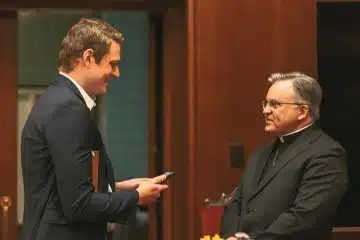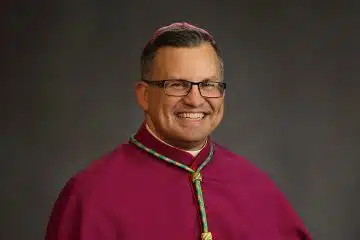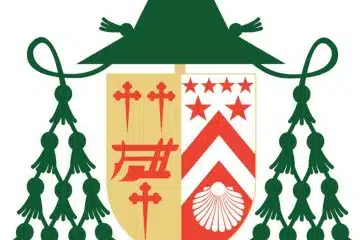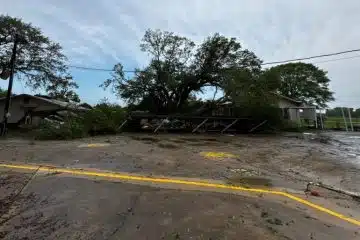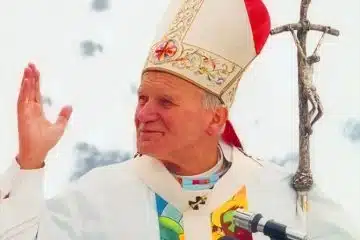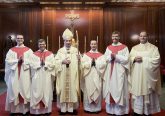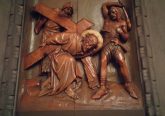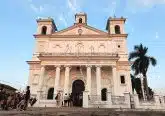Accepting our Sacrifice?
 During the Mass, the people say, “May the Lord accept the sacrifice at your hands for the praise and glory of His name, for our good and the good of all His holy Church.” What does this mean? Why wouldn’t God accept our sacrifice?
During the Mass, the people say, “May the Lord accept the sacrifice at your hands for the praise and glory of His name, for our good and the good of all His holy Church.” What does this mean? Why wouldn’t God accept our sacrifice?
The prayers of the Mass are essentially a dialogue—sometimes between the priest and God, and other times between the priest and people. As the priest begins the Eucharistic Prayer, part of that dialogue is a request for God to accept the sacrifice of the Mass, which is made by the people at the priest’s invitation. To understand this request, we need to consider the structures of the prayers and their role in the Mass.
TO GOD THE FATHER
At the Mass, the priest presides and acts in the person of Christ. Thus, the prayers are principally directed to God the Father, by which the priest represents Christ’s sacrifice to the Father.
This is seen in the opening prayer (called the “collect”) of the Mass. The ancient tradition of the Church addresses the prayer to God the Father, through Christ, and in the Holy Spirit, maintaining the Trinitarian dimension of prayer (“O God… Through our Lord Jesus Christ, your Son, who lives and reigns with you in the unity of the Holy Spirit, God, forever and ever…”).
PRIEST AND PEOPLE
That the priest acts in the person of Christ does not indicate that the priest is totally separate from the worshiping congregation. As Vatican II reminded us, “The prayers addressed to God by the priest who presides over the assembly in the person of Christ are said in the name of the entire holy people and of all present” (Sacrosanctum Concilium, sec. 33). During the dialogue that begins the Eucharistic Prayer, the priest associates the people with himself in addressing God in the name of the entire community.
ACCEPTING THE SACRIFICE
This occurs in Mass when the gifts have been placed on the altar, and the priest, as head of the congregation and in its name, offers them back to God. The priest says to the people, “Pray, brothers and sisters, that my sacrifice and yours may be acceptable to God, the almighty Father.” The people respond, “May the Lord accept the sacrifice at your hands….”
The people’s response relates closely to what comes next: the priest asks God to send down His Holy Spirit to hallow the gifts. At the start of the Roman Canon (Eucharistic Prayer I), for instance, the priest begins, “To you, therefore, most merciful Father…,” making his own plea to God to accept and bless the offerings so that they may become Jesus’ Body and Blood.
GOD’S FREEDOM AND LOVE
This prayer dialogue is a reminder that God is the primary actor in the Mass, not the people or the priest. None of us, whether priests or people, should be presumptuous; we cannot command God. At the same time, God does what He promised—to be with us for all ages—but from His freedom, not our command.
At the Mass, the people are supplicants. They come before God pleading for grace, mercy and strength. He is free to give His gifts as He pleases. We trust that God, out of love, always bestows His gifts on those who ask for them in faith. When we ask God to accept the sacrifice at our hands, we trust that He will.
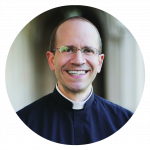 Father David Endres is professor of Church history and historical theology at Mount St. Mary’s Seminary & School of Theology.
Father David Endres is professor of Church history and historical theology at Mount St. Mary’s Seminary & School of Theology.
This article appeared in the April 2023 edition of The Catholic Telegraph Magazine. For your complimentary subscription, click here.



